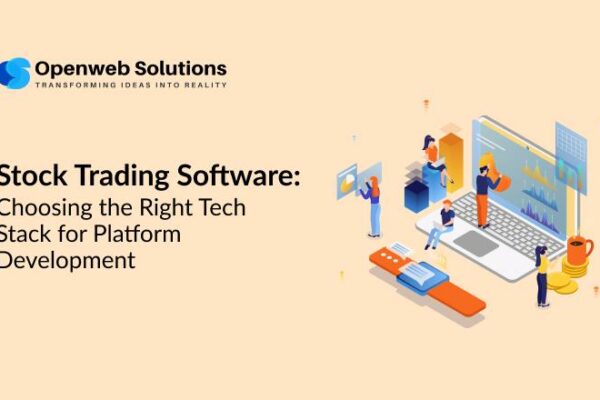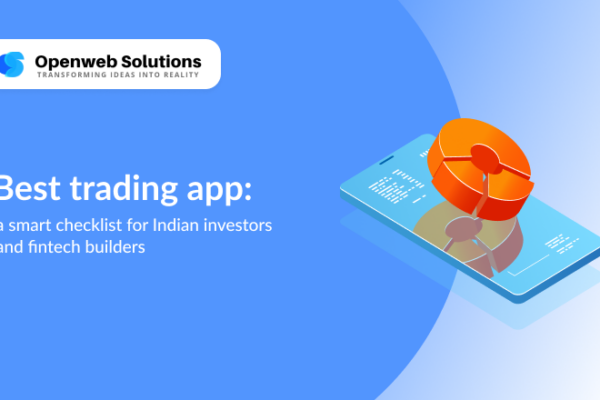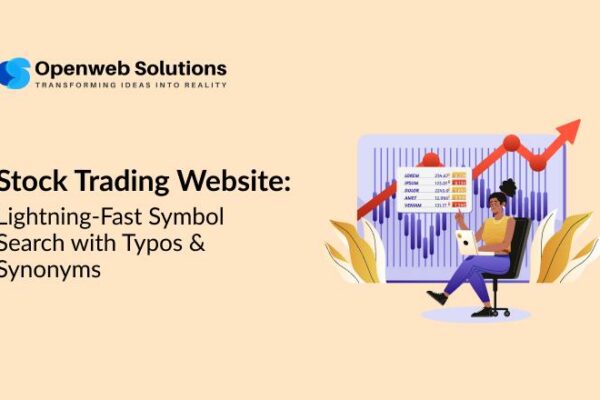Why User-Friendly Design Matters in Stock Market App Development?
In today’s fast-moving trading world, traders seek simple and responsive apps. Whether they are beginners or seasoned investors, a smooth experience matters. Therefore, stock market app development must focus on user-centric design. If an app feels difficult to use, traders may quickly lose interest.
To ensure long-term retention, successful stock market software development always starts with understanding user behavior. With that in mind, let’s explore how thoughtful design enhances trader engagement.
Key Features of a Great Stock Market App
Intuitive and Clean UI/UX Design in Stock Market App Development
First impressions count. Consequently, a clutter-free interface is crucial. It should include:
- Well-structured, easy-to-access menus
- Options for dark mode and theme customization
- Mobile-first, responsive layouts
- Visually simple graphs and clean dashboards
By simplifying interaction, users can make decisions faster and with less frustration.
Real-Time Market Data and Notifications
Traders need timely information. Hence, features that support real-time updates are vital:
- Live stock price feeds with second-level accuracy
- Smart alerts for price changes
- Push notifications for news and events
- AI-driven suggestions based on user activity
These updates enable traders to stay ahead of market movements.
Advanced Security for Safe Trading
A secure app builds user trust. As a result, stock market software development must include:
- Multi-factor authentication (MFA) options
- Biometric login via face or fingerprint
- Full data encryption for transactions
- Compliance with financial regulations
When users feel protected, they’re more likely to use the app consistently.
Seamless Trading Workflow
Smooth, uninterrupted experiences drive higher engagement. To achieve this, consider:
- One-click trade execution
- Integration with banks and e-wallets
- AI-powered support chatbots
- Fast onboarding with step-by-step guides
Such features eliminate friction and make the app easier to adopt.
Data Visualization and Smart Analytics in Stock Market App Development
Good data means better decisions. Therefore, smart apps provide:
- Interactive heat maps and dynamic charts
- Predictive analytics for price forecasting
- Easy-to-understand visuals for all skill levels
- Tips that assist both new and expert traders
Together, these tools make the trading process more strategic and informed.
How Customization Keeps Users Hooked?
Personalization drives loyalty. That’s why stock market website development must offer:
- Watchlists tailored to user preferences
- Customizable dashboards and layouts
- Real-time portfolio tracking tools
- User-defined alerts for timely action
Additionally, cross-device compatibility ensures that users can trade from any platform, anytime.
Final Thoughts: Focus on the User for Long-Term Success
To wrap it up, stock market app development thrives on putting the user first. By combining clear UI/UX, secure trading, live updates, and personalization, your app becomes more than just a tool—it becomes a daily companion.
As financial markets grow, so should your app’s ability to serve users. In doing so, your stock market software development strategy sets you apart in a crowded digital space.
Frequently Asked Questions (FAQs)
Q1. Why is user-friendly design important in Stock Market App Development?
Ans: Because it simplifies tasks, increases usage time, and boosts user satisfaction.
Q2. What security features should a trading app include?
Ans: Features like MFA, biometrics, encryption, and legal compliance keep data safe and build user trust.
Q3. How do real-time updates improve trading?
Ans: They allow users to act immediately, helping them make smarter and quicker decisions.
Q4. What makes users stick with a stock trading app?
Ans: A smooth layout, smart alerts, personalized tools, and consistent support increase user retention.
Q5. How does a trading website improve accessibility?
Ans: It allows users to access their accounts and real-time data on any device, ensuring constant connectivity.
Partha Ghosh is the Digital Marketing Strategist and Team Lead at PiTangent Analytics and Technology Solutions. He partners with product and sales to grow organic demand and brand trust. A 3X Salesforce certified Marketing Cloud Administrator and Pardot Specialist, Partha is an automation expert who turns strategy into simple repeatable programs. His focus areas include thought leadership, team management, branding, project management, and data-driven marketing. For strategic discussions on go-to-market, automation at scale, and organic growth, connect with Partha on LinkedIn.






